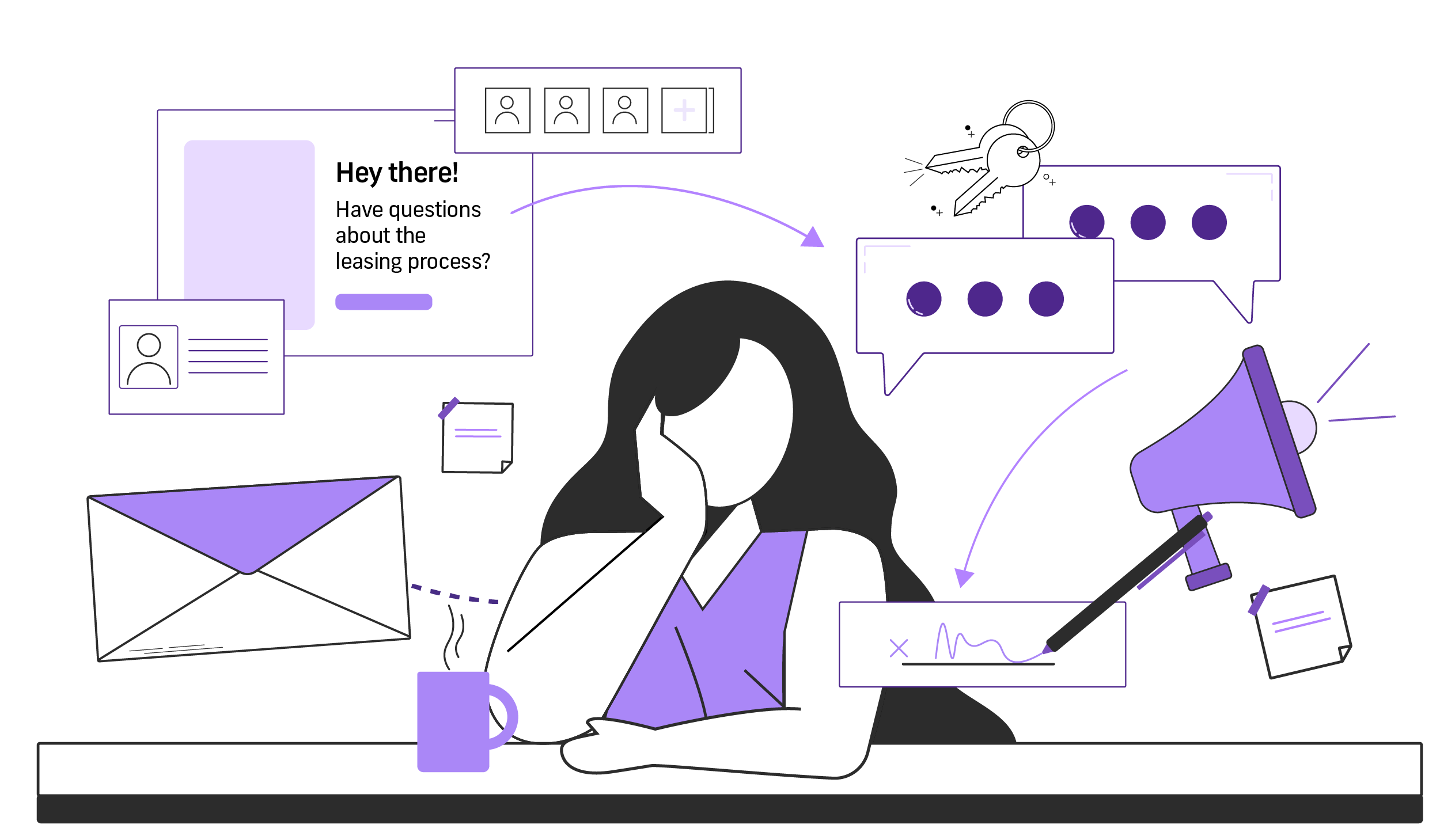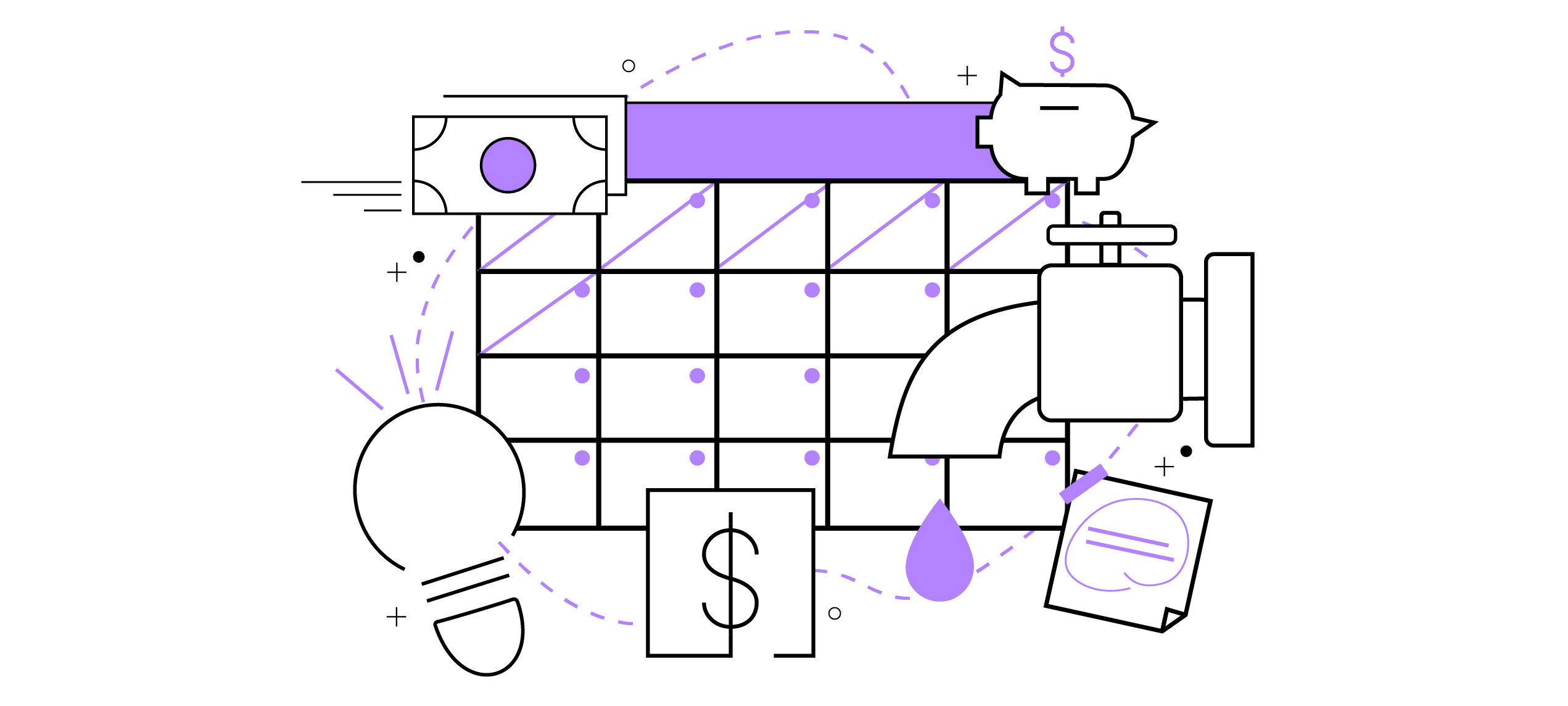How to Create a Utility Management Plan for Apartment and Multifamily Communities
Managing monthly utilities can be a challenging task for apartment communities. Utility expenses can account for a significant portion of monthly costs, and without proper management, it can lead to unnecessary expenses and tenants' dissatisfaction. Therefore, it's essential to develop an effective utility management plan to optimize resource usage, reduce costs and improve tenant satisfaction. In this blog, we will discuss how to create a utility management plan for apartment communities.
What is utility management?
Utility management involves managing utility expenses such as electricity, gas, water, and trash collection. Effective utility management requires tracking and analyzing bill data to identify trends, reduce costs, and improve energy efficiency. The management of these expenses is necessary for effective budgeting and cost-saving measures.
According to the Environmental Protection Agency (EPA), "effective utility management is a continuous improvement process that focuses on achieving the desired outcomes for the community, the utility, and the environment, at the lowest appropriate cost."
Creating a utility management plan
Creating a utility management plan involves the following steps:
Step 1-Identify apartment utilities
The first step in creating a utility management plan is to identify the utilities required for the apartment community. It includes electricity, gas, water, sewer, and trash collection. It's essential to identify these utilities to ensure that all the necessary expenses are accounted for in the budget and that there are no unexpected expenses.
Step 2-Assess apartment utility expenses
The next step is to assess the apartment's utility expenses. This includes gathering information about the monthly utilities, reviewing past utility invoices, and analyzing bill data. This data can help identify trends, usage patterns, and areas where expenses can be reduced. It's essential to track and analyze bill data regularly to ensure that the utility management plan is effective.
According to a report by the National Apartment Association, "Utility bill management and energy benchmarking can help communities assess usage patterns and identify areas where consumption can be reduced."
Step 3-Delegating Responsibility
The next step is to delegate responsibility for managing utility expenses. This can involve appointing a utility manager or assigning tasks to the property management team. It's essential to have someone responsible for managing utility expenses to ensure that the utility management plan is followed and that there are no unexpected expenses.
According to an article by Multifamily Executive, "having a designated utility manager is essential for effective utility management. The utility manager can track usage patterns, identify areas where expenses can be reduced, and ensure that the utility management plan is followed."

Benefits of having a utility management plan
Having a utility management plan can provide numerous benefits, including:
Reduced Costs
An effective utility management plan can help reduce utility costs. By identifying usage patterns and areas where expenses can be reduced, apartment communities can save money on their monthly utility bills.
According to an article by the National Apartment Association, "effective utility management can save apartment communities up to 15% on their monthly utility bills."
Reduced Energy Consumption
An effective utility management plan can also help reduce energy consumption. By identifying areas where energy is being wasted, apartment communities can implement energy-saving measures, such as installing energy-efficient light bulbs or upgrading to energy-efficient appliances.
According to the Environmental Protection Agency, "implementing energy-efficient measures can help reduce energy consumption by up to 30%."
In conclusion, creating an effective utility management plan for apartment communities involves identifying apartment utilities, assessing apartment utility expenses, and delegating responsibility. Having a utility management plan can provide numerous benefits, including reduced costs and reduced energy consumption. By tracking and analyzing bill data regularly, apartment communities can optimize resource usage, reduce costs, and improve tenant satisfaction.


